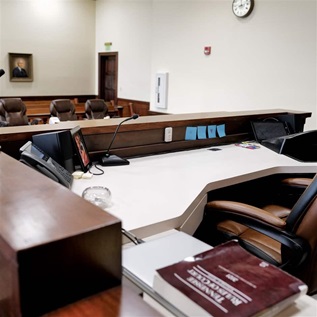The Pew Charitable Trusts Announces New Culture Funding Strategy
As part of its longstanding commitment to enriching the quality of life for citizens throughout the Philadelphia region, The Pew Charitable Trusts today announced a restructuring of its culture program that will make The Pew Center for Arts and Heritage its primary vehicle for arts funding.
Under the leadership of executive director Paula Marincola, the Center will continue to make grants in support of specific artistic projects—raising the maximum size of the awards from $250,000 to $300,000—and will introduce a new funding program to help organizations make longer-term investments that more effectively engage today's audiences. The Center's grants budget will increase by $2 million annually, from $8 million to $10 million.
The Philadelphia Cultural Leadership Program, a separate Pew initiative that currently provides general operating support to 21 organizations, will be phased out by the end of 2015. Instead, The Pew Center for Arts and Heritage will add 20 percent to each of its project grants as unrestricted operating support. For example, an organization that receives a $300,000 grant to support a performance or exhibition will receive an additional $60,000 to cover general operating expenses.
"The Pew Center has been a fabulous resource over the years for the city's cultural community—not just as a source of funding but as a convener and thought leader," said Donald Kimelman, managing director of The Pew Charitable Trusts' Philadelphia program. "This reorganization streamlines Pew's arts grant-making, while providing the center an even fuller set of tools to enrich the region's cultural scene."
Among the changes, which will go into effect starting with spring 2014 grants, The Pew Center for Arts and Heritage will restructure its project funding to better underwrite the most promising work, regardless of genre. It will combine the performance-related initiatives—theater, music and dance—into a single category, called Performance. Similarly, the exhibitions and heritage initiatives will be combined into one category, Exhibitions. As it does today, the Pew Fellowships in the Arts will continue to award $60,000 each year to 12 of the region's most exemplary artists.
Project grants will continue to be decided by panels of leading experts from outside the region who have deep knowledge of their respective fields. The consolidation will streamline the management and oversight structure, while reducing panel costs, thereby resulting in savings that can be invested directly in the most promising initiatives.
The Center will also introduce a new line of funding called Advancement Grants. Recognizing that many arts organizations need to make fundamental changes to ensure a robust future, advancement grants of up to $500,000 will be available to organizations that develop new and better ways to accomplish their missions. These grants will support not only the direct costs of programming, but also related capital and infrastructure needs, such as technology upgrades and audience engagement strategies.
"The reorganization brings into even sharper focus the Center's emphasis on excellence, imagination, and public impact in the work that we support," said Paula Marincola, executive director of The Pew Center for Arts and Heritage. "The ability to consider projects that don't readily fit into single categories like dance or theater, for instance, responds to the fact that many groups are creating exciting new works that combine artistic disciplines. Overall, the changes should result in stronger organizations, and a richer array of offerings for our region's many and varied audiences."
The Pew Center for Arts and Heritage was established in 2005 to house what were then The Pew Charitable Trusts' seven artistic initiatives: Philadelphia Music Project, Pew Fellowships in the Arts, Dance Advance, Philadelphia Theatre Initiative, Philadelphia Exhibitions Initiative, Heritage Philadelphia Program, and Philadelphia Cultural Management Initiative.
Numerous Center-funded performances and exhibitions have enjoyed both critical praise and audience appeal, including: the Philadelphia Museum of Art's "Dancing Around the Bride;" Opera Philadelphia's "Silent Night;" the Arden Theatre's "Sunday in the Park with George;" the Mural Arts Program's "Love Letters" murals along the Market Street El; and "Emancipating Cliveden," a project that transformed an historic site into a vibrant neighborhood center.
With these changes the Center will become, in effect, The Pew Charitable Trusts' Culture program, with greater engagement with Pew's senior leadership and board.
The Philadelphia Cultural Leadership Program was first introduced in 1997 to encourage local cultural groups to raise their organizational and financial expertise. Today the groups that succeeded consistently in winning that support are regarded as leaders in the field, and their artistic excellence has contributed considerably to Philadelphia's growing reputation as a thriving cultural center.
Since 2006, when The Pew Center for Arts and Heritage launched its grant-making, the Center and the Philadelphia Cultural Leadership Program together have invested more than $67 million in arts and culture in the region.






